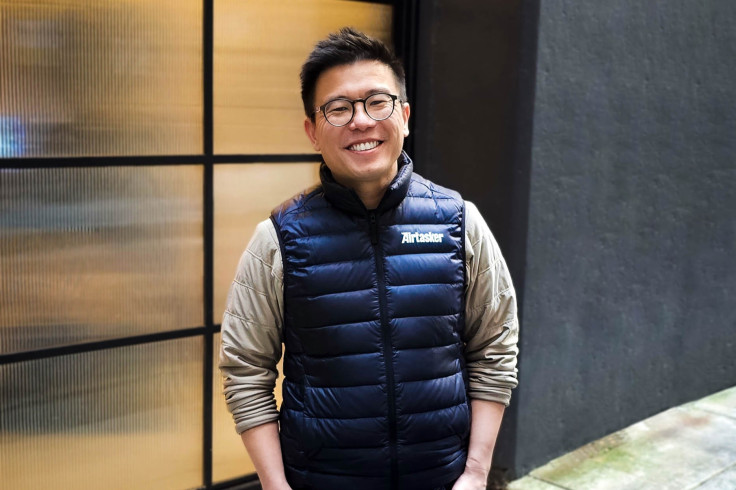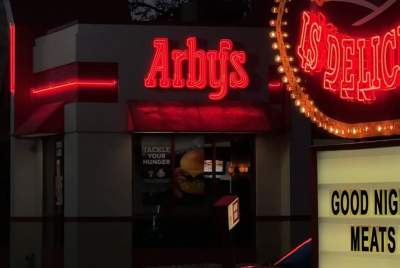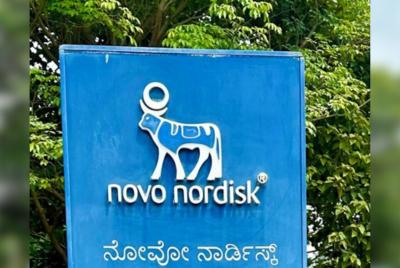International Business Times - Q&A: Tim Fung, Founder & CEO, Airtasker
How Airtasker's founder is reshaping flexible work, empowering skilled earners, and taking a community-driven marketplace global.

Tim Fung is the founder and CEO of Airtasker, the Australian-born platform transforming how people find and offer work in the flexible labour economy. Since launching in 2012, Fung has grown Airtasker into a global marketplace where users can outsource everyday tasks, from lawn mowing and furniture moves to wedding photography, while others earn by putting their skills to use.
Today, the platform boasts more than 4.7 million members across Australia, the UK, and the US, and has generated over £700 million in job opportunities worldwide. In this conversation, Fung reflects on Airtasker's journey from simple task outsourcing to creative collaborations with Formula One teams, the rise of flexible work, and how AI and media partnerships are shaping the platform's next chapter.
Let's start with your journey. You've been part of Australia's tech ecosystem for over a decade. What inspired you to create Airtasker, and how has your vision for the company evolved since those early days?
Tim: Airtasker came when I was moving flats and needed a hand, and it just felt crazy that there wasn't an easy way to find someone nearby who could help. It made me realise that there are great people everywhere with time, skills and willingness to pitch in, but no simple or trusted way to connect them with people who need things done.
In the beginning, Airtasker was about getting everyday tasks sorted like cleaning, moving and handy work. Over time it's become so much more. We've seen tax accountants, lawyers, photographers and editors earning through the platform. What started as a way to get odd tasks done has grown into a movement that helps people use their skills to earn, connect and create opportunities for themselves.
Airtasker began as a way for people to get everyday tasks done. Today, it's powering creative briefs for Formula One teams and forging partnerships with major broadcasters. What does that shift tell us about how the platform, and the gig economy itself, have evolved?
Tim: It shows how flexible work has become part of the fabric of the modern economy. The gig economy isn't just about small errands anymore; it's about creative, specialist, skilled work too. As trust in platforms like Airtasker has deepened, people are happy to post bigger, more complex projects, or even small but very important or urgent tasks.
With Airtasker, people can tap into skill-led experts who bring real passion to their work, like horticulturalists or gardeners taking on extra projects in their field. Flexible work is becoming aspirational; many professionals use Airtasker to share their expertise, grow their client base, and earn on their own terms while doing what they love.
The collaboration with Visa Cash App Racing Bulls (VCARB) turned heads, especially by crowdsourcing a Formula One helmet design from the Airtasker community. Why was it important to make that a paid, open creative brief rather than a traditional marketing activation?
Tim: We wanted VCARB Formula 1 drivers Isack Hadjar and Liam Lawson to experience the Airtasker product in the same way that every other user would. This kept it authentic and drove real engagement from our community, with an incredible variety of offers being placed. We saw everyone from designers to handypersons and even removalists submitting ideas. In the end, it was actually a Tasker, Ilya, who usually does handyperson tasks, whose idea was chosen. It brought our mission to life through transparency and creativity, showing that amazing ideas can come from anywhere. It showed exactly what Airtasker is about: giving people opportunities that might have felt out of reach before.
Airtasker's renewed media-for-equity partnership with Channel 4 Ventures is an innovative growth move in today's cautious funding climate. What makes media capital such a powerful alternative to traditional venture investment, particularly for digital marketplaces?
Tim: Media partnerships have been transformative for Airtasker. They enable us to partner directly with world-class media companies and share some of the massive upside in exchange for high-impact media exposure. This approach lets us invest in brand growth more efficiently, amplifying awareness and trust, which are vital for marketplace businesses like ours, while aligning our media partners in our long-term success.
Airtasker's partnerships, such as its Formula One collaboration, highlight the brand's creative side. How do initiatives like these help strengthen brand equity and attract new types of talent to the platform?
Tim: Our partnership with VCARB really shows what's possible. Many people know about Airtasker as a great way to get everyday things done, but tasks like the one posted by the VCARB F1 drivers highlight that it's also a platform for creativity and opportunity. When you see an Airtasker community member designing a VCARB F1 helmet, it makes you think, "Wow, that could be me."
Tasks like these inspire people to think differently about how they can use Airtasker and be open to new types of talent, from designers and creators to skilled professionals and specialists. They remind everyone that Airtasker is for anyone with a skill and a bit of drive, and that there's no limit to what you can do on the platform.
The UK marketplace is scaling fast, more than doubling in activity across Taskers and tasks. What's driving this surge, and how is Airtasker positioning itself within the UK's competitive gig and local services landscape?
Tim: In the UK, people love the idea of flexible, independent work. They want to earn on their own terms, while customers want things done quickly and easily, and that combination has really powered our growth.
Our media partnership with Channel 4 Ventures has helped turbocharge that. It's put Airtasker in front of millions of new people, and it's done so in a way that's smart and sustainable. Trading equity for airtime instead of cash advertising has been massive for brand awareness and community growth.
What's great is that it's not just more tasks being posted. We're seeing repeat customers, higher-value work, and Taskers turning this into proper income. It's proof that Airtasker's model works and that people genuinely love using it.
Many people still think of Airtasker as a "side hustle" platform, but some Taskers in the UK are earning over £7,000 a month. How is Airtasker redefining what flexible, independent work can look like, and what does that mean for the future of sustainable income?
Tim: It's really exciting to see how people are growing on the platform. We've got Taskers who started out doing the odd job and are now running full-time operations, some earning more than £7,000 a month.
That's what Airtasker's all about. It's not just one-off tasks; it's about giving people the freedom to work on their own terms. Some might take on more tasks when they have extra expenses or big life events coming up, and scale back when they need to. The flexibility is real. People can shape their work around their lives, not the other way around.
As Airtasker expands globally from Australia to the US, UK, and beyond, how do you balance maintaining a strong community-driven ethos while scaling as a listed international company?
Tim: The only way we can scale is by building and supporting the Airtasker community. Without Taskers and customers, there is no Airtasker. They're at the heart of everything we do.
No matter how big or small we are, it always comes back to the same mission: connecting people who need things done with those who have the time and skills to do them. Every new market and every partnership starts from that same principle. Being listed doesn't change that. If anything, it gives us a bigger platform to champion our mission: creating opportunities for people everywhere to earn and connect through their skills.
With the rise of AI, automation, and flexible work models, how do you see Airtasker adapting to ensure people's unique skills remain at the centre of the future of work?
Tim: Nvidia founder Jensen Huang recently said, "Plumbers will win the AI race", and we agree. As more white-collar jobs are taken away and automated by AI, the value of a human's trade and craft skills will increase massively, and at Airtasker, we want to support that transition. We do see AI as a tool to make life easier for our community and through our collaboration partnership with OpenAI, we're already using technology to make the platform smarter and more efficient while keeping human creativity right at the centre.
AI can help with things like better task matching, smarter pricing and faster support. It takes out the admin so people can focus on doing great work. It also helps us keep the platform fair and safe.
But what's most important is that Airtasker will always be about people. AI can help us connect the dots, but it's the Taskers, their skills, their creativity and their drive that make it all come to life.
Finally, looking ahead, what's next for Airtasker? Are there new markets, innovations, or partnerships on the horizon that you're particularly excited about?
Tim: We're doubling down on growth in the UK! We've just secured a third round of funding through Channel 4 Ventures, which means we can keep building the brand and reaching more people across the country. Globally, we're focused on scaling responsibly and creatively. Our partnership with VCARB has been a strong example of how we can build the brand in ways that feel true to who we are: connecting communities, celebrating creativity and opening real opportunities.
Looking ahead, it's all about staying true to the mission, helping people everywhere earn in new ways, showing what's possible when a community comes together, and making sure the Airtasker story keeps inspiring people all over the world.
Find out more information about Airtasker here.
© Copyright IBTimes 2025. All rights reserved.





















